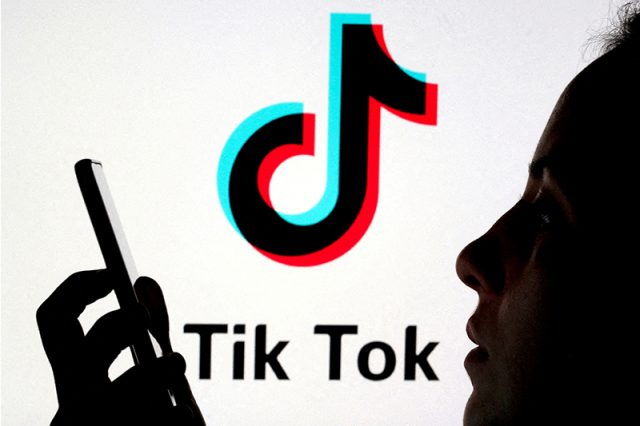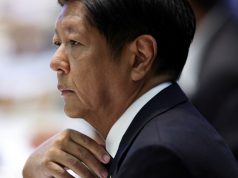
LOS ANGELES— When Cassidy Jacobson was 13 years old, she posted a video of herself dancing on the popular app TikTok.
Little did she know then that six years later her Casssidy_J account would have 1.5 million followers on the short-form video platform with fans drawn to her love of dance and hair care.
Jacobson dreams of using her success on TikTok – an app used by 150 million Americans – to start her own curly hair care line and inspire others to love their natural curls.
That dream and those of other TikTok creators may be dashed as many lawmakers pressure the Biden administration to ban the popular Chinese-owned social media app in the United States, alleging the app could be used for data collection, content censorship and harm to children’s mental health.
Last week, TikTok said the Biden administration demanded its Chinese owners divest their stakes or face a potential ban.
Jacobson is preparing for the possibility that she may have to take her content elsewhere if the Chinese company ByteDance, which owns TikTok, is no longer allowed to provide the app in the United States.
“TikTok is kind of rocky right now and the goal of a content creator is to grow yourself across platforms to have a solid community, you don’t just want to focus on one app,” Jacobson told Reuters.
Whether it’s creating all new content for YouTube reels or taking her TikTok content and transferring it over to Instagram, the influencer is making sure to diversify her content.
At a tense congressional hearing on Thursday, TikTok chief executive Shou Zi Chew faced tough questions from lawmakers.
“We do not promote or remove content at the request of the Chinese government,” Chew told the hearing, adding the app was “free from any manipulation.”
Alternatives
There are less severe options than banning the app outright, said Freedom House Research Director for Technology and Democracy Allie Funk.
“Congress could pass a robust privacy law and bolster requirements for companies to be more transparent about their operations and practices,” she told Reuters.
She suggests a comprehensive privacy law to limit data collection from TikTok along with regular audits to ensure transparency.
While it’s still not clear if the bill introduced by senators to grant the Commerce Department power to ban foreign technology will pass, many TikTok influencers are advocating for preservation without prohibition.
“There needs to be protection for users on apps, I think the only way is for the government holding ginormous companies accountable, whether they’re U.S.-based or they’re based in China,” Jacobson said.
Regardless of the country, she believes that privacy violations from anyone harms everyone.
That is a sentiment echoed by some Democratic lawmakers, some of whom worry about the political fallout for President Joe Biden of banning something so beloved by many young voters.
Trans Chicana TikTok creative NaomiHearts, known for her self-love content, believes a ban would dampen her faith in Biden, for whom she voted in 2020.
“We put our trust in someone, in my mind there’s no good politician,” said Naomi, who declined to give her full name. “But I put him in office because I believed in what he stood for and as time goes by, I think this is going to affect a lot of people’s opinions.”
Naomi said she is a bit reluctant to switch over to other platforms, as TikTok has given her opportunities that she hasn’t found elsewhere.
Beyond popularity and fans, TikTok backers believe it provides livelihoods, paths to social change and a sense of community.
“As a trans person in this world, they (society) don’t really care about us, so to be able to make six figures a year because of TikTok, and brands reaching out to me because of that app, it’s wild,” she said.
—Reporting by Danielle Broadway and Rollo Ross; additional reporting by Sheila Dang and David Shepardson;Editing by Mary Milliken and Aurora Ellis









